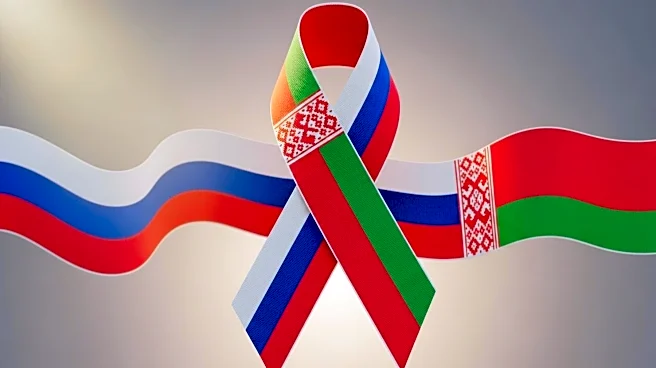What's Happening?
The International Paralympic Committee (IPC) has decided to lift the partial suspensions of Russia and Belarus, restoring their full membership rights. This decision was made during the IPC general assembly held in Seoul, South Korea. The assembly voted against a full suspension for Russia with 111 votes to 55, and against a partial suspension with 91 votes to 77. Similarly, for Belarus, the vote against a full suspension was 119 to 48, and against a partial suspension was 103 to 63. This move allows both countries to regain their full rights and privileges as IPC members, following their ban from international sporting events due to Russia's invasion of Ukraine in 2022. The Russian Paralympic Committee welcomed the decision, viewing it as a step towards protecting athletes' rights without discrimination. However, Ukraine's sports minister, Matvii Bidnyi, criticized the decision, urging European partners to prevent the display of the Russian flag at the upcoming Winter Paralympic Games.
Why It's Important?
The lifting of suspensions on Russia and Belarus by the IPC is significant as it impacts the international sports community and the geopolitical landscape. This decision could lead to tensions with other sports governing bodies, especially with the upcoming Milan-Cortina Paralympics. The reinstatement of these countries may be seen as a controversial move, given the ongoing conflict in Ukraine. It highlights the complex intersection of sports and politics, where decisions can have broader implications beyond the athletic arena. The potential for a Ukrainian boycott of the games underscores the divisive nature of the decision and its potential to influence international relations and sports diplomacy.
What's Next?
The IPC will work with Russia and Belarus to implement practical arrangements for their reinstatement. The decision may prompt reactions from other countries and sports organizations, particularly those hosting future events. Ukraine's response and potential boycott will be closely watched, as it could influence other nations' stances. The situation may also affect the participation of Russian and Belarusian athletes in other international competitions, depending on the policies of individual sports federations. The broader sports community will need to navigate these developments carefully to maintain the integrity and inclusivity of international competitions.











